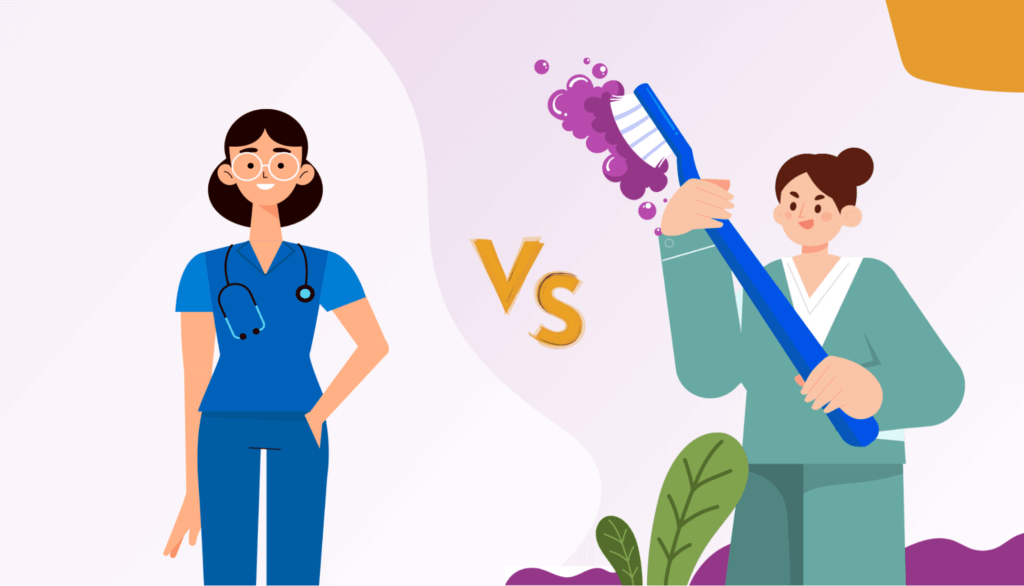Did you know there are different types of healthcare assistants? If you need support, choosing the right person for your practice is important.
Here, we’ll compare medical assistants and dental assistants side by side. We’ll talk about their daily duties and the minimum education requirements for each role.
You’ll also learn about the median salary for both positions and how this can vary depending on the industry and location. And we’ve put together a section on essential skills to help you find the right person for your healthcare facility.
Finally, we’ll tell you about our virtual assistants and how they can be an affordable alternative to in-house medical and dental assistants.
Let’s get to it.
What are medical and dental assistants?
Medical and dental assistants are responsible for a wide range of administrative tasks. They can also support health professionals with patients, sterilize equipment, and assist during procedures.
While these two positions are similar, there are a few key differences. What sets them apart is where they work.
Medical assistants work in clinics, hospitals, physicians’ offices, and other healthcare settings. Dental assistants work in dental offices and oral surgeries.
If you need help in your practice, you may be considering hiring one of these team members. However, an in-office person isn’t the only solution for your clerical duties.
When you choose Hello Rache, you can get virtual support from a Healthcare Virtual Assistant (HVA) or a Dental Healthcare Virtual Assistant (DHVA). From scheduling appointments to transcribing documents, our team can take care of all your repetitive tasks.
Our virtual assistants are HIPAA-trained and ready to work.
Get in touch today to learn more about our services.
What is the difference between a medical assistant and a dental assistant?
You already know that dental assistants and medical assistants work in different healthcare settings.
Their daily duties also vary.
Before we give you insights into a day in the life of each of these professions, consider this: many of the tasks are administrative. Because of this, a virtual assistant can be an affordable and efficient alternative to a medical or dental assistant.
Now, let’s compare dental and medical assistants side by side:
A day in the life of a dental assistant
Dental assistants work with dentists, dental hygienists, orthodontists, and oral surgeons.
Some of their most common administrative job duties include answering phones, scheduling patient appointments, and updating files.
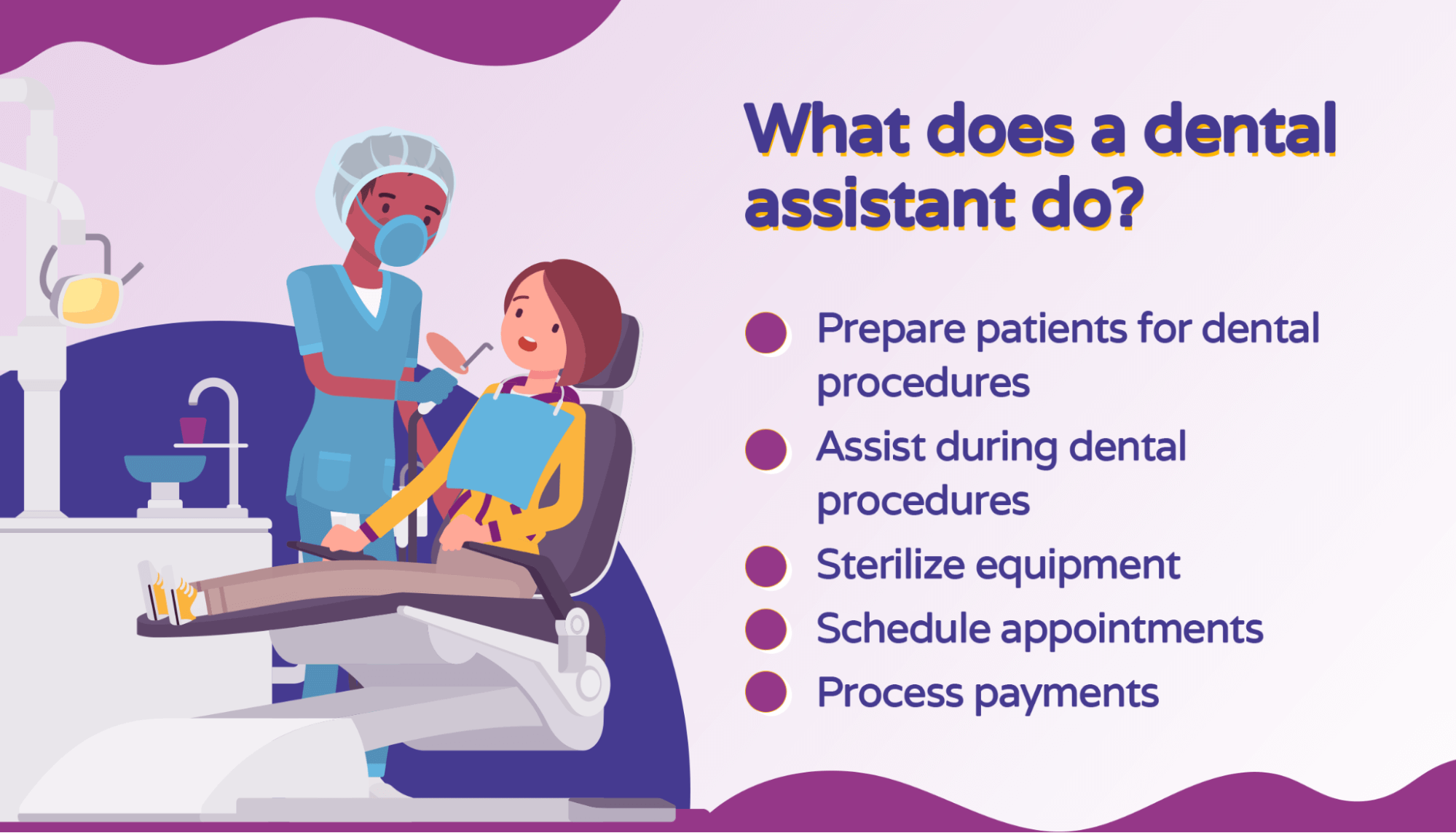
Dental assistants also greet visitors when they arrive. They prepare patients for treatment and make sure they’re comfortable during their visit.
During dental procedures, these team members also assist the dental professional. They can pass instruments, take notes, and chat with patients.
They sterilize dental instruments to help prepare for different treatments, such as root canals and oral surgery. Additionally, they keep the dental office clean and tidy. They may restock supplies and order goods from suppliers when the office runs low.
Dental assistants may also educate patients after their appointments. For example, they may give them information on oral healthcare and home care.
These team members may also process credit card and cash payments. They issue receipts and follow up on overdue accounts.
A day in the life of a medical assistant
Medical assistants work in a range of settings, including urgent care centers, medical offices, private clinics, and hospitals.
These team members support medical physicians, nurses, and other healthcare professionals.
They do a variety of tasks, such as updating medical records and patient histories. They schedule appointments and keep track of medical calendars. When patients cancel or reschedule their appointments, they update the schedule.
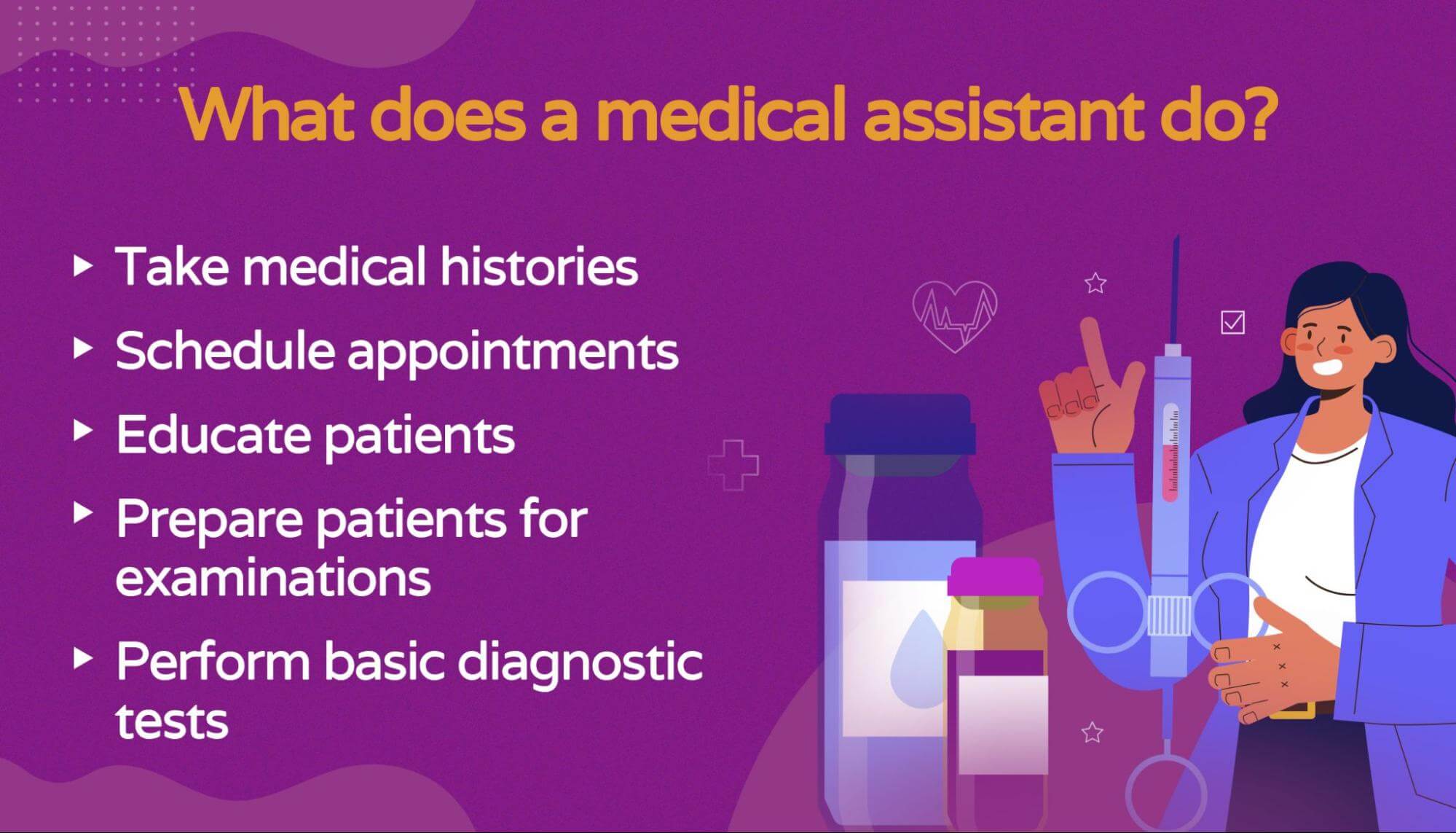
When visitors arrive, medical assistants ask for their details, such as their name and phone number. They also provide new patients with appropriate registration forms and medical histories which will be used for their medical records.
If visitors have questions, the medical assistant will answer them.
Additionally, medical assistants prepare patients for examinations and perform a range of basic diagnostic tests. For example, they may weigh patients, check blood pressure, take blood samples, and process x-rays.
Like dental assistants, medical assistants are also responsible for educating patients and processing payments.
Qualifications
Now, let’s compare qualifications. Both dental assistant and medical assistant roles require a high school diploma or equivalent.
While medical assistants don’t need a four-year degree, an associate’s degree and certification are required by most employers. They must also pass a certification exam offered by one of the four certification agencies. Medical assistants also usually have on-the-job experience.
Additional training is required for those who need to perform tests and assist during treatments.
Dental assistants must also complete an accredited certificate program and pass an exam.
If you use an HVA or DHVA from Hello Rache, you’ll get experienced, trained professionals. Many who have worked in healthcare as nurses or physician assistants.
Average salary for a medical assistant
If you’re thinking about hiring a medical assistant, you may be wondering how much it will cost. In the US, the average salary for a medical assistant is $17.88 per hour or $37,190 per year.
Over the next 10 years, demand for these workers is set to increase by 16%.
The average annual wage can vary depending on where your healthcare team works. For example, medical assistants in outpatient services make an average of $38,270 per year.
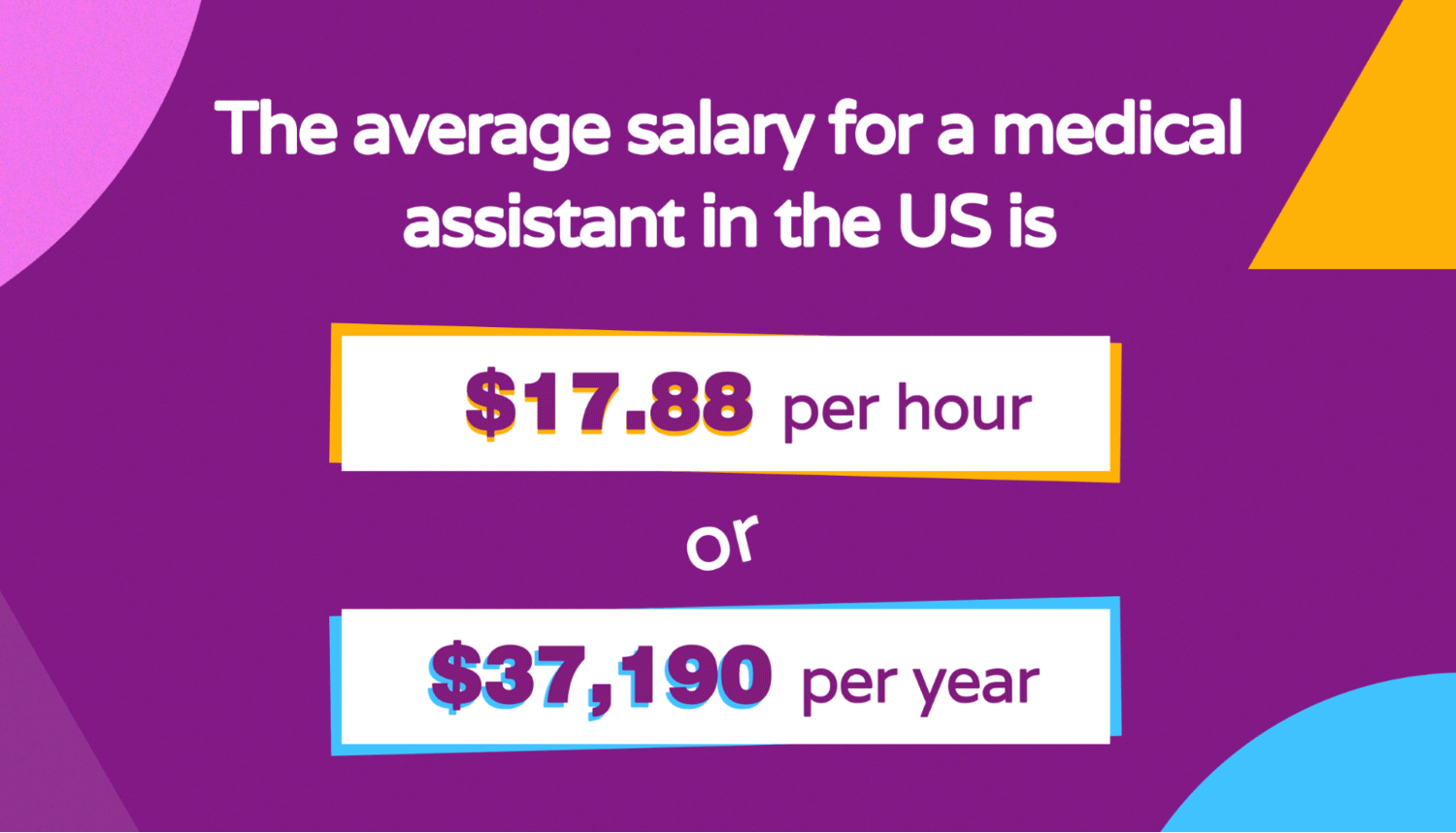
For those working in hospitals, the average salary is $37,800 per year. In a physician’s office, it’s slightly lower at $37,150. While medical assistants in chiropractic offices make an average of $30,100 per year.
Location can also impact a medical assistant’s salary. The highest-paying state for this profession is Washington, where the average salary is $47,320. Next is the District of Columbia, where the average salary is $46,690.
In Alaska, it’s $46,390, and in California, it’s $44,780.
The good news is that you can get help from Hello Rache for just $9.50 per hour. It’s a flat rate, and you can cancel at any time.
Average salary for a dental assistant
How much does a dental assistant make? In the US, the average hourly wage is $18.59 or $38,660 per year.
The job outlook is positive for these workers, with 8% growth expected in the next 10 years.
How does the annual salary vary between workplaces? Those in government dental positions make the most, with an average salary of $46,090 per year. In dentist offices, the salary is around $38,500 per year.
The highest-paying state for dental assistants is Minnesota, where the average annual salary is $53,080.
Articles You Might Also Like:
What Personal Qualities Should a Dental Office Administrator Possess?
Dental Virtual Assistant: Responsibilities And Benefits
Front Desk Dental Receptionist: How to Hire the Right One For Your Practice
What to look for in a dental receptionist for your practice
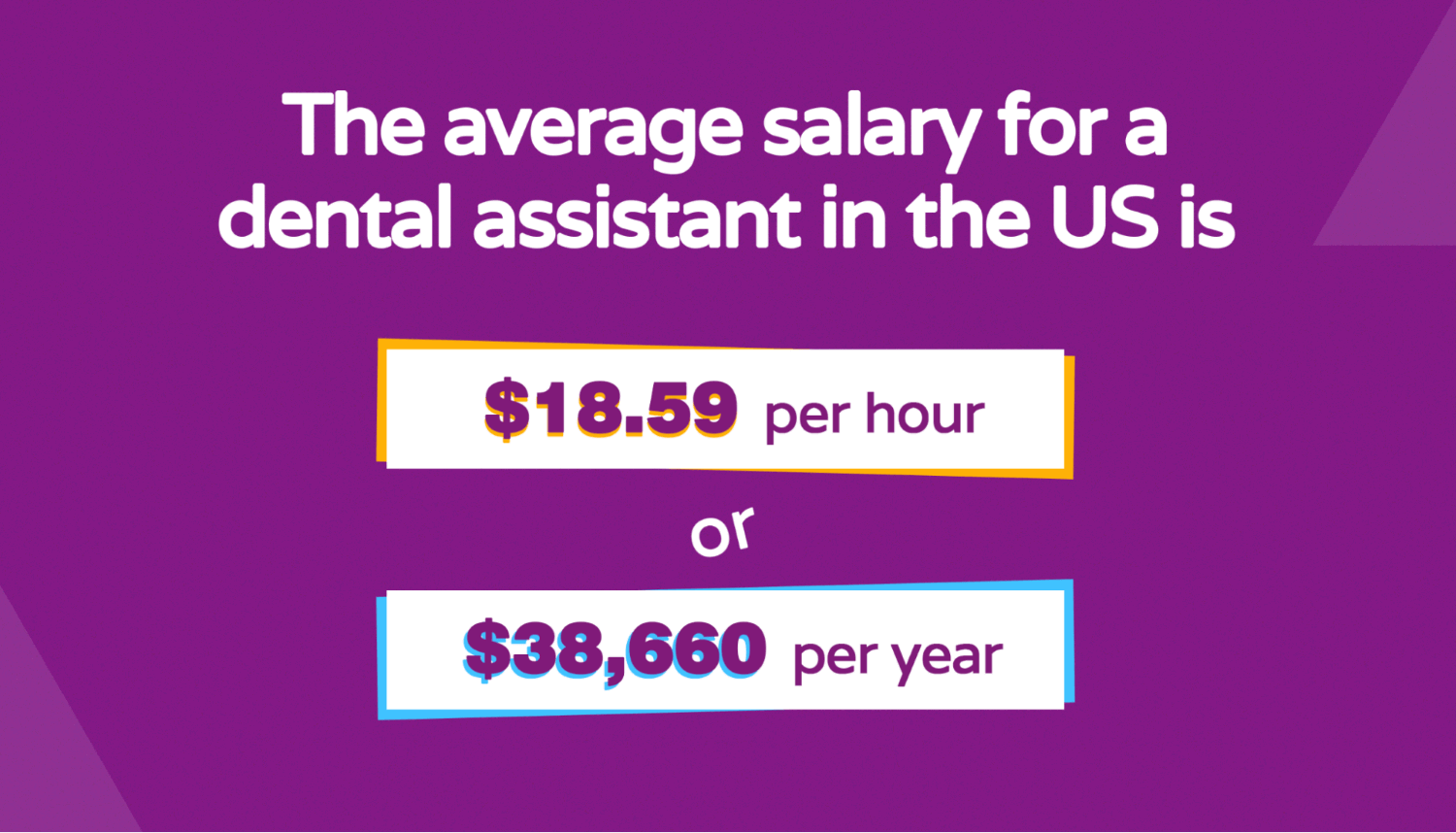
Next is Massachusetts, where the average annual salary is $51,210. In Alaska, the average salary is $50,640, and in New Hampshire, it’s $49,470.
If you don’t have that much money to invest in a new employee, our DHVAs can take care of your clerical duties for a flat rate of $9.50 an hour.
What skills should your assistant have?
If you’re looking for an assistant, there are a few skills you should look for. Whether it’s an in-person assistant or a virtual one, put the following skills on your essentials list:
1. Patient handling
Patient handling is essential for all healthcare jobs. Your assistant should have excellent communication skills and provide high-quality care.
They should be able to remain cool and calm under pressure and be comfortable working with people from different backgrounds. An empathetic and caring nature ensures your patients have a positive experience and helps your patients feel safe. They should be friendly, positive, and organized.
Our HVAs and DHVAs have excellent listening skills. They can talk to your patients over the phone and create a good first impression.
2. Attention to detail
Before you choose someone for an assistant position, make sure they exhibit good attention to detail.
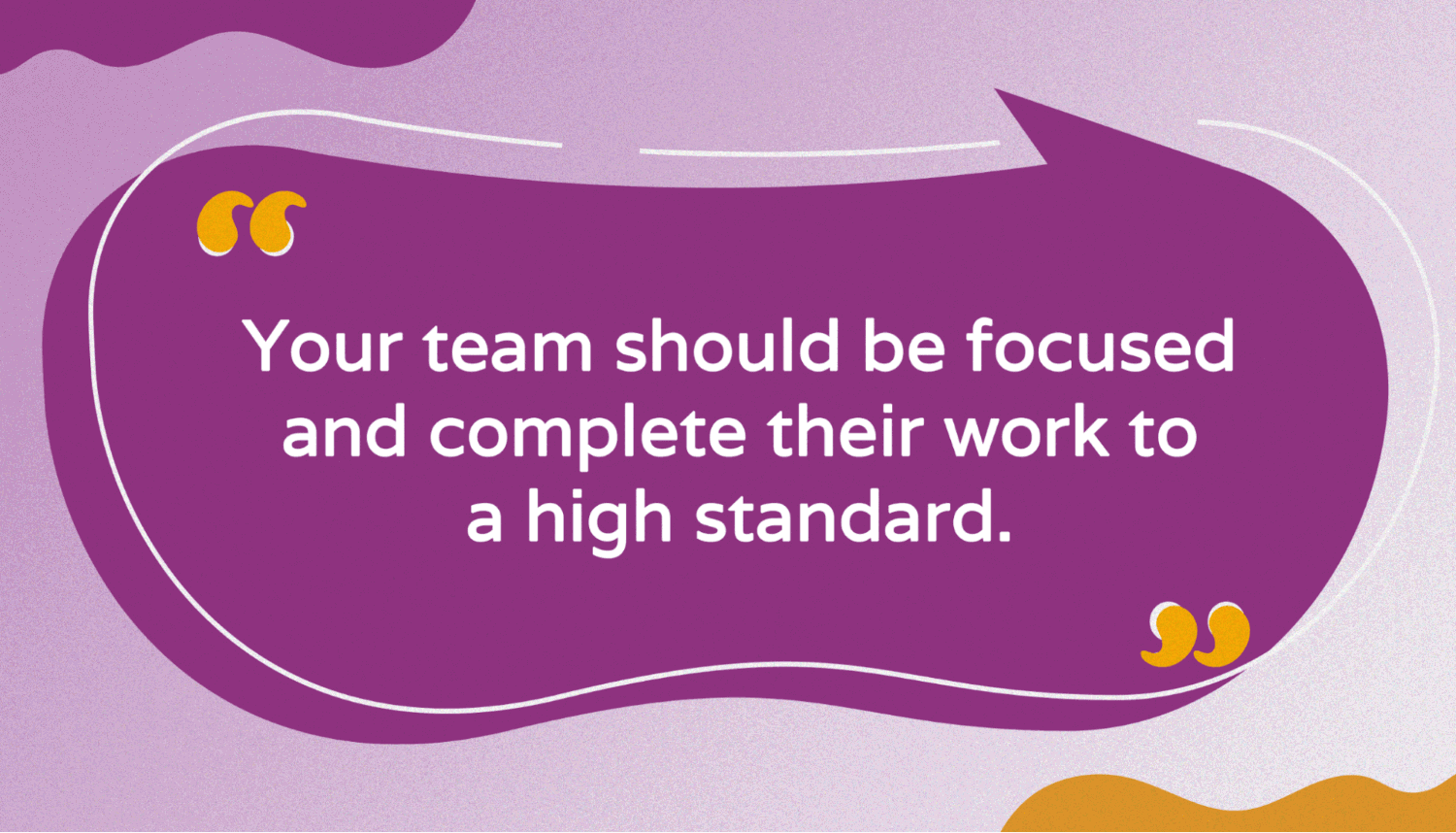
All health fields require accuracy and a focused team. For example, a medical assistant must maintain accurate records. Entering the wrong treatment details can be detrimental to the patient’s health.
This same attention to detail is just as important for those assisting with dental care. Whether it’s updating dental records, reviewing patient information, or holding a suction tube, a detail-oriented person will be less likely to make a mistake.
Rest assured, our Hello Rache virtual team members pride themselves on quality, accurate administrative work so your in-house team can focus on in-person tasks.
3. Medical expertise
Another skill to look for is medical expertise. Whether it’s a medical or dental career path, current knowledge of the subject matter will be beneficial.
For example, your medical assistant should understand complex medical terminology and abbreviations and be aware of all HIPAA guidelines. This skill can be particularly useful when entering data and transcribing documents.
Likewise, a dental assistant should be passionate about the industry and have knowledge of oral care and treatments. HIPAA guidelines must also be well known to the dental assistant.
4. Administrative skills
Next, there are administrative skills. To be successful, your assistant should have strong computer and typing skills.
Assistants should be confident speaking on the phone, as they’ll be responsible for answering calls, scheduling appointments, and answering questions. Sometimes, there can be multiple calls to juggle, and this requires strong time management skills.
Data entry and transcription can also be part of the job. Experience in these areas will ensure that your paperwork is taken care of to a high standard.
Your healthcare assistant should be dependable and ready to start work when needed.
5. Teamwork
The healthcare industry relies on teamwork. Your healthcare assistant should be a team player and able to collaborate well with others.
In both medical and dental settings, assistants need to cooperate with other healthcare professionals. For example, a dental assistant is responsible for organizing the calendar for dentists and dental hygienists. They can be present during appointments and provide help as needed.
A medical assistant works closely with doctors, nurses, surgeons, and other healthcare professionals. They organize schedules, book meetings, and offer support during treatments.
What about a virtual assistant?
Now you know the differences between dental assistants and medical assistants. But there’s one more option worth considering.
A virtual assistant can do most of the same clerical tasks as an in-person employee. For example, they can update medical histories, transcribe documents, answer phones, and enter data.
You can also get help with your emails and social media accounts. If you need someone to scribe in real time, a virtual assistant can get the job done professionally via video chat or phone.

We have options available for any medical or dental clinic. Our team members work remotely, so you won’t need to find new office space.
You can get access to a team member for a flat rate of just $9.50. There are no sign-up fees, long-term commitments, or overtime. Plus, you won’t need to offer them benefits.
You can get administrative assistance when you need it, even after hours or on weekends.
Our virtual assistants can support your existing team. If your employees are feeling overwhelmed by paperwork, we can take care of it for you.
Because our virtual assistants are HIPAA-trained and have medical expertise, they know how important patient care is. They follow all rules and regulations and keep your sensitive data secure.
Remember, Hello Rache’s virtual assistants are organized and have excellent time management skills.
Medical assistants vs dental assistants
All healthcare organizations need support with clerical duties. If you run a medical practice, you may be considering a medical assistant. Alternatively, if you have a dentist office, you can look for a dental assistant.
Both of these roles are similar. However, there are a few differences. For example, medical assistants support doctors and nurses, while dental assistants work with dentists and dental hygienists.
If you’re looking for an assistant, they should have the right skills. Find someone with patient-handling experience, attention to detail, and medical expertise. Administrative and teamwork skills will also be beneficial.
Both jobs include clerical duties, such as answering phones and updating patient records. If you need help with administrative tasks, a Healthcare Virtual Assistant or Dental Healthcare Virtual Assistant could be the best choice for you.
Want to know more? Contact Hello Rache today.
Discover what Hello Rache can do for you and your practice
Tell us a little about your practice & we will contact you within 24 hours.
SCHEDULE A CONSULTATION
